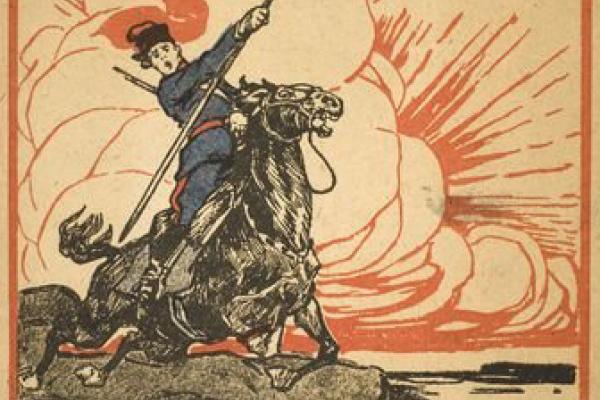
In the cataclysmic nine years from 1914 to 1922, tsarist Russia disappeared from the map, fragmenting into regions, cities, and villages as an entire empire split into battle zones. Crushed by the Germans in World War I, Russia declined economically and demographically.
During the revolutions of 1917 and the ensuing civil war, the country fell to pieces. And yet, despite the bitter suffering, this was a time of remarkable creative expression, when all levels of Russian society were alive with literary and artistic invention. While political, social, and military perspectives on this period of Russia’s war, revolution, and civil war naturally focus on institutions, leaders, parties, and battles, “Mapping Poetic Geographies of Revolutionary Russia” expands our picture with rich geographical subjectivities-that emotional sense of belonging to place that is a fundamental marker of identity.
This project is grounded by a database of poetry and short prose actually composed during these war years. It includes over 500 works by seventy writers from the most varied walks of life, some world-class poets and some only recently literate. This cross section allows us rare insight into ordinary Russians dealing with extraordinary upheaval, and it helps us capture a shifting sense of self and attachment to a place. An interactive website will offer access to poetic texts and allow users to search for place-related concepts and toponyms, and to plumb the variety of emotional resonance. Users will be able graph word frequency and shifts of usage over the nine years of war and revolution. The database will also provide available biographical information on these writers, and accompanying maps will correlate actual war zones and areas of writing and publishing activity. Translations of some poems will give English speakers the chance to enter Russians’ inner experiences of their homeland in war and revolution.
Directed by Edith W. Clowes (Fellow: 2019-2021), Department of Slavic Languages and Literatures
